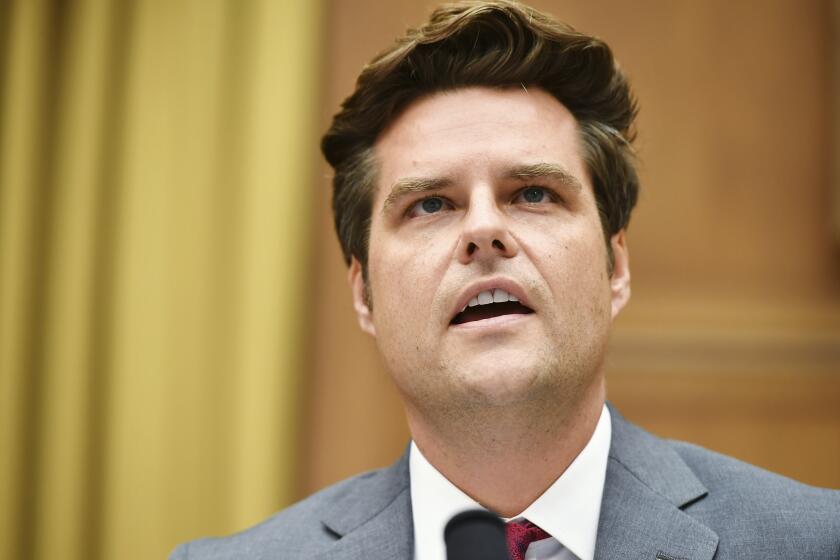Sheila Krumholz -- she follows the money
It was a California politico, Jesse Unruh, who nailed the relationship between dough and democracy: “Money is the mother’s milk of politics.” Where does it come from, and where does it go? Sheila Krumholz makes it her business to tell us. As executive director of the nonpartisan, nonprofit Center for Responsive Politics, she monitors the witches’ brew of federal lobbying and loot at https://www.opensecrets.org which names donors and tracks categories like earmarks, interest groups, even contributions by ZIP Code. Just before election day, she talked about this year’s political cash cows, and the 20-plus years she’s spent following the Watergate admonition to follow the money.
Something like $6 billion was spent on this election cycle — scads of it from unknown donors — as a consequence of the Citizens United ruling.
The Supreme Court got it wrong in Citizens United in terms of the transparency their decision relies upon. The justices argued that money does not corrupt the system because we have disclosure. But the disclosure the court sanctioned 8-1 is sorely lacking. So they got it wrong. It’s possible some of them are regretful.
We have a series on our OpenSecrets website called “Shadow Money”, which documents how groups are raising and spending money in secret.n The system is not working as it was intended.
Why not?
The Federal Election Commission is its usual mostly non-functioning self. They’re at loggerheads because they’re designed to be so, so nothing of great importance gets done [the commission by law has three Democratic and three Republican members]. In the case of requiring disclosure of donors to independent expenditure organizations running ads, several members of the FEC have essentially acted as agents of nullification. It’s a sock in the eye to transparency and the Congress.
Those organizations call themselves nonprofit social welfare groups. People think of nonprofits as helping children or the needy, not as political expenditure groups.
It’s hogwash. These organizations are taking advantage of the tax-exempt status offered to nonprofits. The IRS allows political activity as long as it’s not [a group’s] primary purpose. The IRS is slow [to audit them] because, who controls the IRS’ budget? Congress. And Congress has said: Don’t you dare. It will take public outcry to say, hell, yes, the IRS needs to audit these activities, which no one believes are primarily conducted on behalf of the public welfare.
Money and politics have always been conjoined twins in this democracy.
I wonder what folks thought about [19th century] candidates essentially purchasing votes with money or rum. Even then, there was a sense that money greases the skids. In Montana, mining barons ran the state. That brought about [campaign] reforms. Watergate was a watershed event, with suitcases of cash, which clearly didn’t fly with the public; change was imposed.
Whatever campaign reform law is passed, someone figures out a way around it.
The hydraulic theory of campaign finance, yes: Money will flow around and over and under barriers. Every 10 years or so, we figure out how the lawyers have gamed the system, then we close the loopholes. There’s the law of unintended consequences; with each reform, the intent may not match what ultimately happens. This is the rallying cry of the forces against reform: We should just get rid of all regulation. Many also want to get rid of limits and disclosure. I think that would be incredibly dangerous.
But you don’t mess with the system lightly because [that] may create scenarios where the elite accumulate more power and less transparency. Most Americans agree that this is, as Churchill said, the worst system but for all the others. We’ve got to keep plugging away at improving it.
Why are campaigns so expensive?
There’s always pressure, particularly from the machinery around politics, to earn and spend as much as possible. It’s about what the market will bear. And now, post-Citizens United, that has just skyrocketed, the pressure on candidates to be constantly dialing for dollars. Look at the presidential candidates: They [spent] precious time fundraising in tony living rooms on the Upper East Side and Beverly Hills, in states which were not in play, when they would otherwise have been reaching out to voters in swing states.
Supreme Court Justice Louis D. Brandeis said sunshine — openness and scrutiny — is the best disinfectant. Is it the solution to everything?
No, but it’s an essential element. If you want to know how democracy functions, you have to seek out the facts. We provide facts so that, should the people decide that someone is trying to use the rules to their narrow advantage, the people can say, this is what we need to change.
In each [campaign reporting] cycle there are millions upon millions of individual donations. We’re processing tens or hundreds of millions of data points every month. We’re getting this information out of what used to be dusty filing cabinets and into a format that is more easily digestible.
You also track lobbyists — there are about 20 to every member of Congress — and lobbying money. Does lobbying yield a return for those who pay for it?
Some studies by academics have said it really isn’t influential; others have said [that] in very specific cases, they’ve gotten enormous return on their investment. In one case I remember, a 22,000% return on investment. Some corporations have spent maybe tens of millions over time; that’s a drop in the bucket compared to the benefits they will reap if they’re successful in getting legislation stopped or started. When you’re talking about a GE [General Electric] that pays no corporate taxes, the lobbying they’ve invested in — even if it’s tens of millions of dollars a year — is pennies on the dollar compared to the benefit.
Many of these mega-companies, these multinational companies that can afford huge sums for lobbying, also have enormous numbers of employees who have [the money] to invest sizable amounts in politics. Lobbying and campaign contributions are inextricably tied.
Does it matter that almost half the members of Congress are millionaires?
It’s an intractable problem that those who have the resources and who live and work in elite circles are those who are more able to navigate a system dependent on big money. Candidates may have ideas, charisma, connect with the voters, yet if they don’t have money themselves or access to those with money, they’re unlikely to win. It’s not all they need, but it’s one essential element. The last average Senate cycle needed about $10 million [in campaign funds]; in the House, about $1.4 million.
Campaign contributions now have to be filed to the FEC electronically.
For everyone except the Senate, which has exempted itself. It’s completely inexcusable. Even they’re embarrassed about it — at least some of them, and others are defiant. The FEC has to wait for the Senate to send them the data. The secretary of the Senate has to transmit the paper files.
It’s ludicrous, really. In the Senate, [there’s] a sense of entitlement, of specialness, that they don’t answer to anyone. The truth is there hasn’t been enough pressure placed upon them by the public to insist on change.
The Internet must make your job easier.
When I started in 1993, I worked in the bowels of the Library of Congress, sitting on a concrete basement floor, looking at Polk city directories to match [donations to] individuals. Polk directories listed the names of everyone in the household, so we were able to see when a non-wage-earning person [contributing to a campaign was] a spouse or dependent children. Now we can just go online and find their Little League scores and find they’re 7 years old and giving $1,000 [to a campaign].
Kids as donors? Is that legal?
Only if they’re giving legally and willfully of their own money. The FEC has been asked many times what the threshold age is; they’ve never provided it. They have [made] advisory opinions that infants are too young to contribute willfully and knowingly of their own money.
In one classic story, a reporter called and asked a 12-year-old why she gave $1,000 or $2,000 to Senate candidate John Ashcroft. She said, “Just a minute,” put the phone down and presumably conferred with her parents and came back and said, “I just think he’s doing a great job.” It’s all with a wink and a nod. The FEC has not stepped in to ban the practice.
What outrages stick with you?
Post office boxes. So many outside organizations are raising and spending millions of dollars, and yet they only exist [legally] as a post office box. Many of these organizations are using lax oversight and post-Citizens United [practices] to directly influence the electoral process without citizens being the wiser.
The Center for Responsive Politics is nonpartisan and nonprofit, but that doesn’t stop people from accusing it of bias, usually liberal bias.
That’s true, but we’re not so worried about that. Our work speaks for itself. People are going to say whatever they can for political advantage, but the public and the press view our research as credible and nonpartisan.
Don’t you ever get fed up and want to close your office door and walk away?
It’s often disheartening, but there’s no alternative. People are in this fight whether they like it or not. If I were to walk away, if any voter were to walk away, that’s just what those deep-pocketed interests would like. Because then they’re alone in their efforts to influence policy and politics.
Follow Patt Morrison on Twitter @pattmlatimes
This interview was edited and excerpted from a taped transcript. An archive of Morrison’s interviews can be found at latimes.com/pattasks.
More to Read
A cure for the common opinion
Get thought-provoking perspectives with our weekly newsletter.
You may occasionally receive promotional content from the Los Angeles Times.











